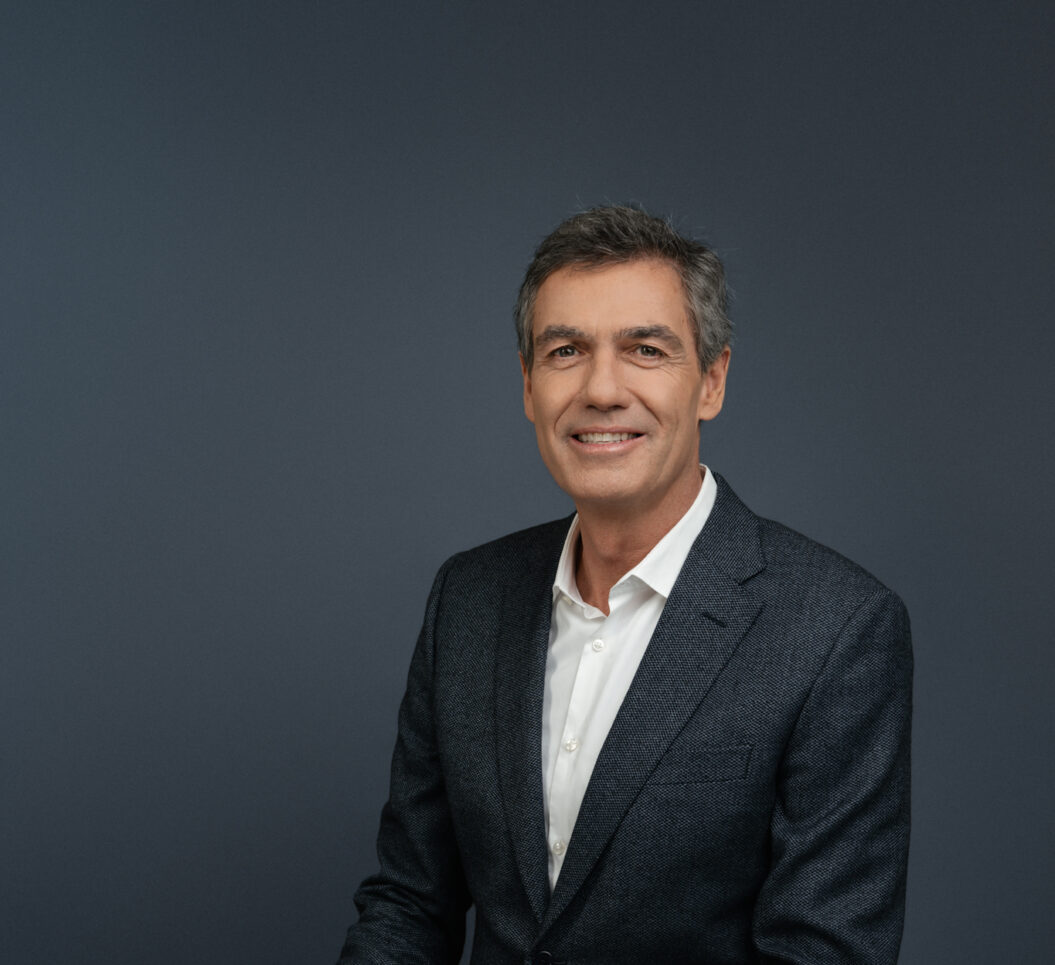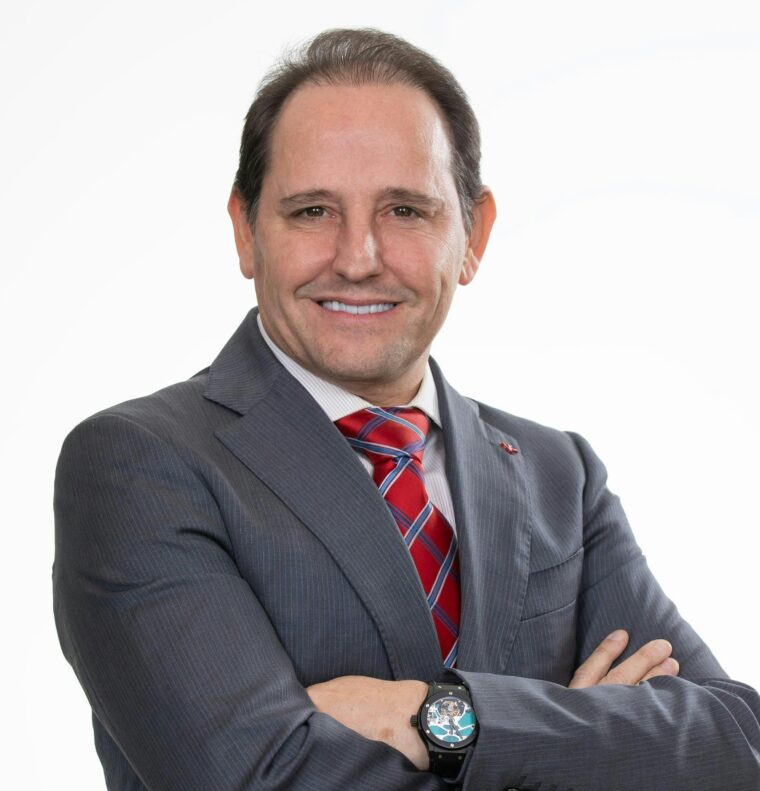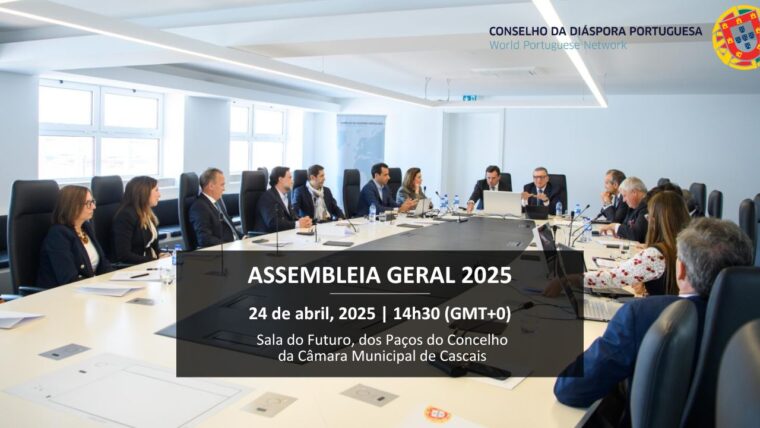Portuguese people who stand out abroad are helping to find out where business opportunities are and what kind of companies and activities the country can attract. An initiative that brings together Negócios and the Portuguese Diaspora Council.
1. What led you to leave Portugal?
I studied in the United States, and I was always attracted to the idea of expanding horizons and traveling the world. It ended up being a natural growth, taking advantage of the opportunities that arose. After being CEO of McDonald’s in Portugal for 6 years, I received the invitation to be president of the Southern Europe region. For some time, I held this role based in Lisbon, but I travelled 4 days a week in more than 10 countries, because I like being on the ground, understanding the markets and I was carrying out a deep restructuring in the region. It became increasingly difficult to do so from here. When I was asked to also join the executive committee of McDonald’s France, I decided to move to Paris, where I spent 5 years. I was then vice-president of the executive committee of McDonalds Europe, in Genève, and later Chief Franchising Officer Worldwide , based in Chicago, leading the global franchising strategy for the brand’s 36,000 restaurants. When I decided to leave McDonald’s, I returned to Lisbon to launch my own project in the restaurant sector, which I have held several positions as chairman and non-executive director of several companies in Europe, Asia, and Latin America.
2. What advantages or disadvantages does being Portuguese bring you?
I have always worked in companies that value diversity, performance, entrepreneurship and results. I didn’t feel any disadvantage in being Portuguese, quite the opposite. Starting in a small country, I learned to manage with fewer resources than my colleagues in larger countries. This forced me to be pragmatic, I got away from “not invented here”, the obsession of always having to invent something new. In some cases, I adapted, improved, and managed to execute existing ideas more successfully. In other situations, the smaller size also attracted our creativity. We locally develop a culture of innovation shared throughout the organization, with McDonalds Portugal having been recognized several times as the most innovative subsidiary in Europe. Our intellectual flexibility and ability to adapt are not a cliché. We are good listeners, we work well as a team, we like to understand the country, the people, and the culture, which naturally facilitates our integration. And finally, I would highlight resilience. Portuguese managers went through very difficult economic circumstances, facing difficulties in a bureaucratic country, with an inefficient public administration and, often, in an environment unfavourable to productivity and growth. I think these circumstances help us face adverse contexts in other countries.
3. What obstacles did you have to overcome and how did you do it?
I like to talk more about challenges: each difficulty is an opportunity for personal and professional growth. To overcome them, you must have humility to learn and determination to
move forward, create and develop good teams, valuing work together, and, finally, have a strategic vision, perceived, and shared by the entire organization.
Among the various challenges I faced, I highlight the following: in the USA, an enormous internal competitiveness that was an incentive to focus on the essentials and be “ results oriented ”; in Sweden, I was confronted with a collaborative, non-hierarchical and consensus-building culture, which confirmed the importance of knowing the local reality and creating trust between the various “ stakeholders ”; In some Southern European countries, I had to manage excessive informality and resistance to change in a period of crisis, which forced me to make profound changes to the management teams. China was perhaps my biggest challenge while I was at McDonalds, due to the size and characteristics of the market, the cultural shock, the conditioning of economic activity and, in this particular case, our timings that did not fit with the characteristic rhythm of a negotiation process at that time. country. The CEO of McDonalds had communicated to Wall Street that we would franchise 4,000 restaurants around the world over a period of two years, and to achieve this we had to find a partner for the Chinese market. I spent practically a year in China and Hong Kong. It was a fascinating process, which proved how essential it is to have a presence in the market and be surrounded by a motivated and diverse team. We completed the sale of 2,300 restaurants to a local franchisee one year ahead of schedule.
4. What do you admire most about the countries where you have worked?
I have always admired the innovation, ambition, and entrepreneurship in the United States; frontality and meritocracy in the Netherlands; the rigor of the Swiss; and the sense of citizenship and social responsibility in Scandinavia.
5. What do you admire most about the company you worked for?
McDonalds was the company where I spent the most time. I highlight the commitment to the brand’s values, the unique relationship between the company, franchisees and suppliers, the focus on the consumer, the ability to execute, community involvement, ethics, and resilience. Diversity and opportunities for growth and personal development are part of the company’s DNA and explain, for example, why in the last global senior management meeting I participated in, a small country like Portugal was one of the most represented.
6. What recommendations would you give to Portugal and its entrepreneurs and managers?
We have excellent managers and entrepreneurs in Portugal from whom I learned and continue to learn. I am particularly impressed by this new wave of ambitious and determined managers and entrepreneurs who are able to reach further and earlier than my generation did.
Portugal has to grow more and be more productive. We have to look at those in front of us and not those who follow us. We must understand why we grew little, why we were overtaken, why we lost competitiveness. There is no social justice without sustained growth. In my opinion, there is a lack of incentives for growth and productivity and conditions must be created for greater investment in R&D, deepening the connection to academia, as we have excellent
universities in Portugal. And, finally, companies must simplify their lives and reduce bureaucracy more and more quickly.
Abroad, I believe that there may be greater collaboration between Portuguese companies to develop projects together, especially when entering new markets. It is not about privileging nationality over competence, but rather about enhancing our mutual knowledge, gaining dimension, valuing synergies, and taking advantage of complementarity. We can do more and better together, and this is one of the objectives that the Diaspora Council is strongly committed to.
7. In which sectors of the countries where you have already been could Portuguese companies find customers?
We have companies that can be competitive in several sectors. Proposals must be differentiating and innovative, attach great importance to human capital and not be based on low-value products and services. Customers are increasingly demanding of companies and their role in society, which is why a consistent ESG strategy is imperative anywhere in the world.
8. In which sectors in Portugal could companies from the countries where you were present want to invest?
Continue to invest in the digital sector and new technologies and renewable energies. I think that the agri-food sector has enormous opportunities; Our gastronomy, our wines, our products already have greater international recognition, we must invest in quality, origin, and authenticity. I think there are interesting prospects for real estate outside of large urban centres, as well as for the health tourism sector.
9. What is the competitive advantage of the countries where you were or are present that could be replicated in Portugal?
The reduction in tax burden, administrative simplification, investment in knowledge and continuous training with greater connection to universities. Valuing talent must be a national goal. Some countries already have holistic and integrated programs with public entities, private companies, and universities to attract and retain talent. We are witnessing a true “brain drain”, part of the most qualified generation in our history leaves the country not by choice, but due to a lack of opportunities. Obviously, without growth, without competitive salaries and without wealth creation, everything becomes more complicated.
10. What role can managers who returned to Portugal, but who maintain an international activity, play?
Many of us have positions in other countries and maintain a network of contacts around the world that can facilitate investments in Portugal and the access of Portuguese companies to international clients. It was for this reason that the nucleus of the return diaspora was created. One of our objectives is to strengthen networking between advisors and facilitate the sharing
of experiences and benchmarking. We can work more and better together by developing concrete actions not only with companies, but also in the education, science, health, or culture sectors. There are projects underway, others under study, but we feel a great desire from counsellors for greater involvement and contribution through the various hubs that have been created.







